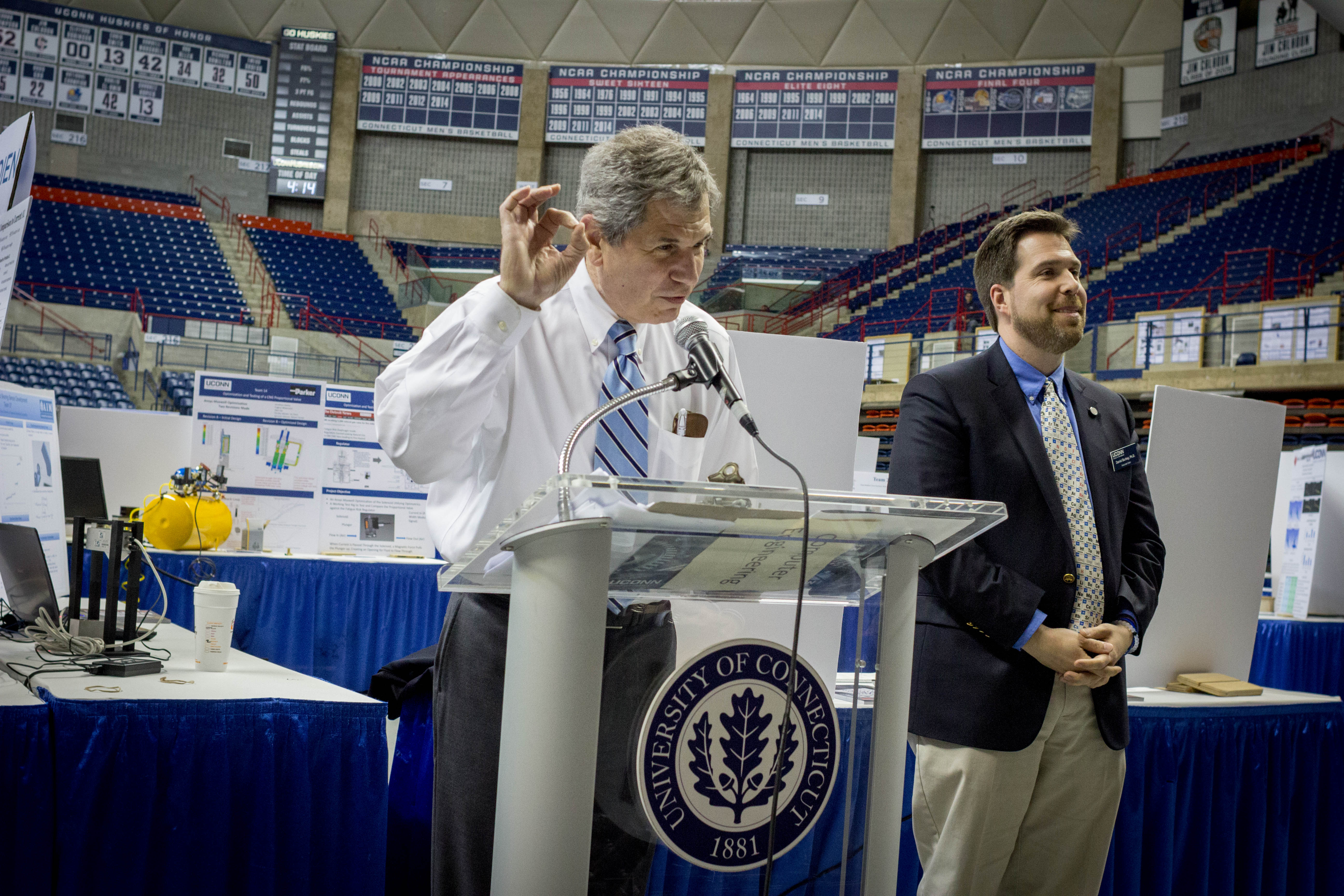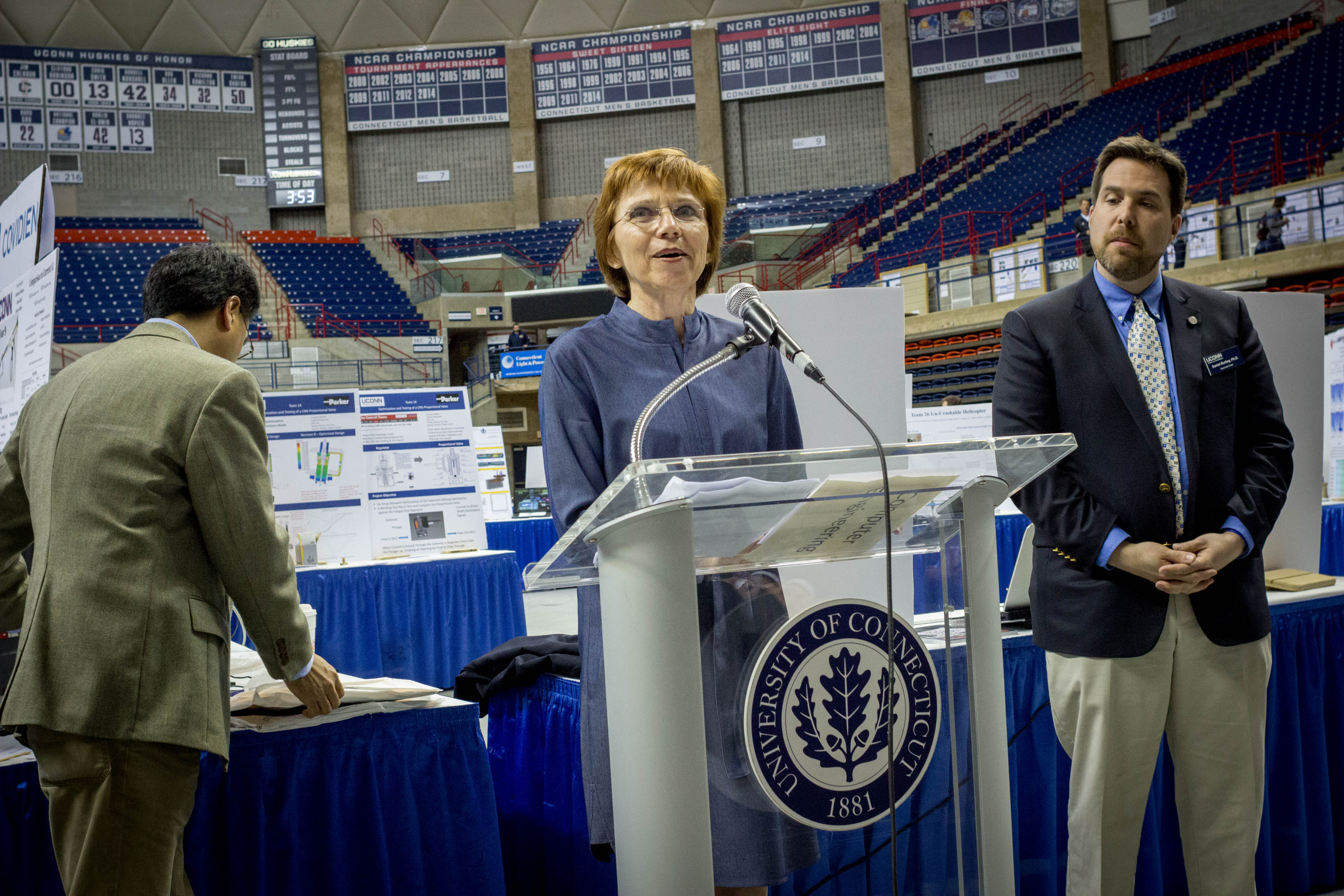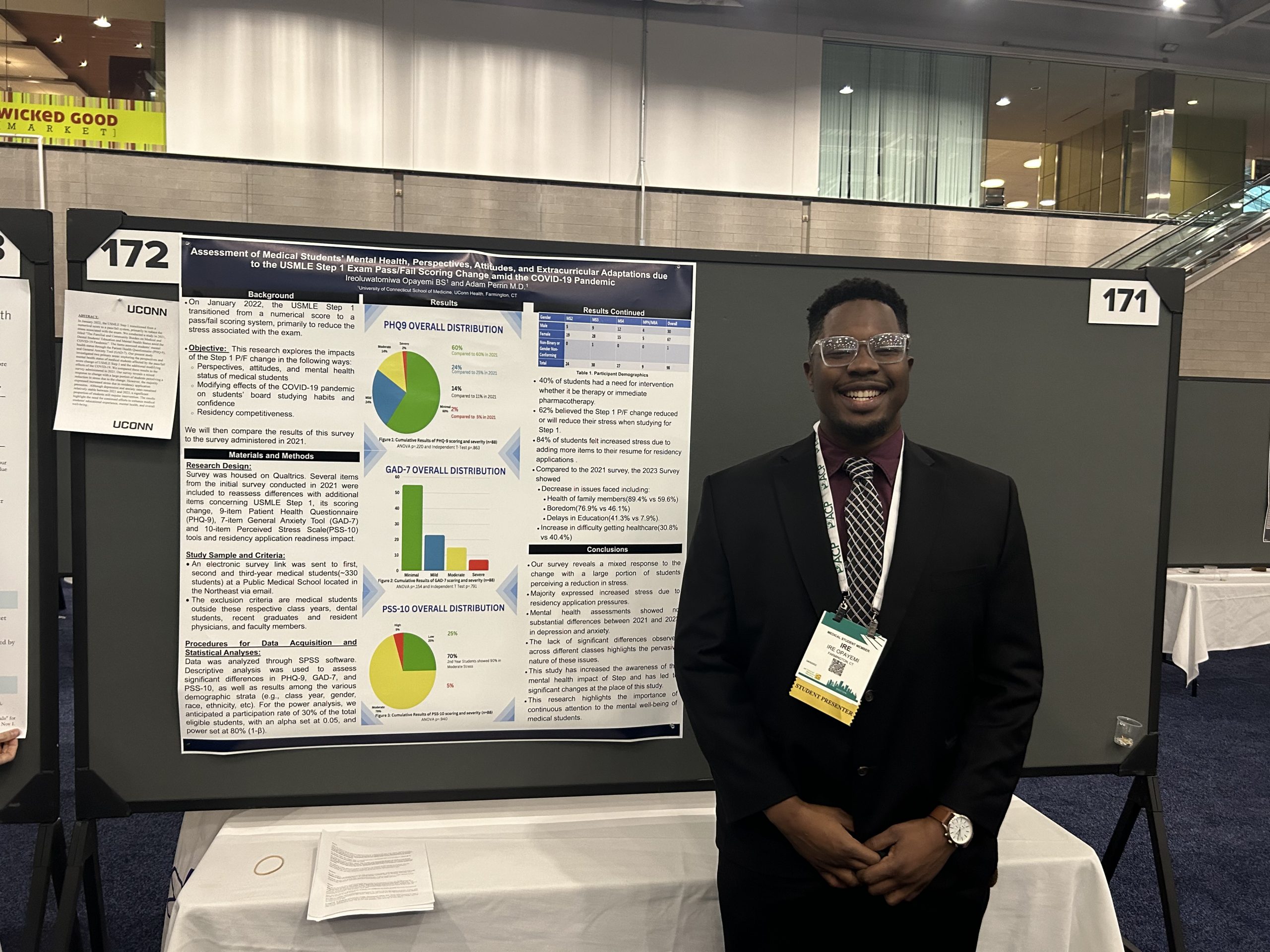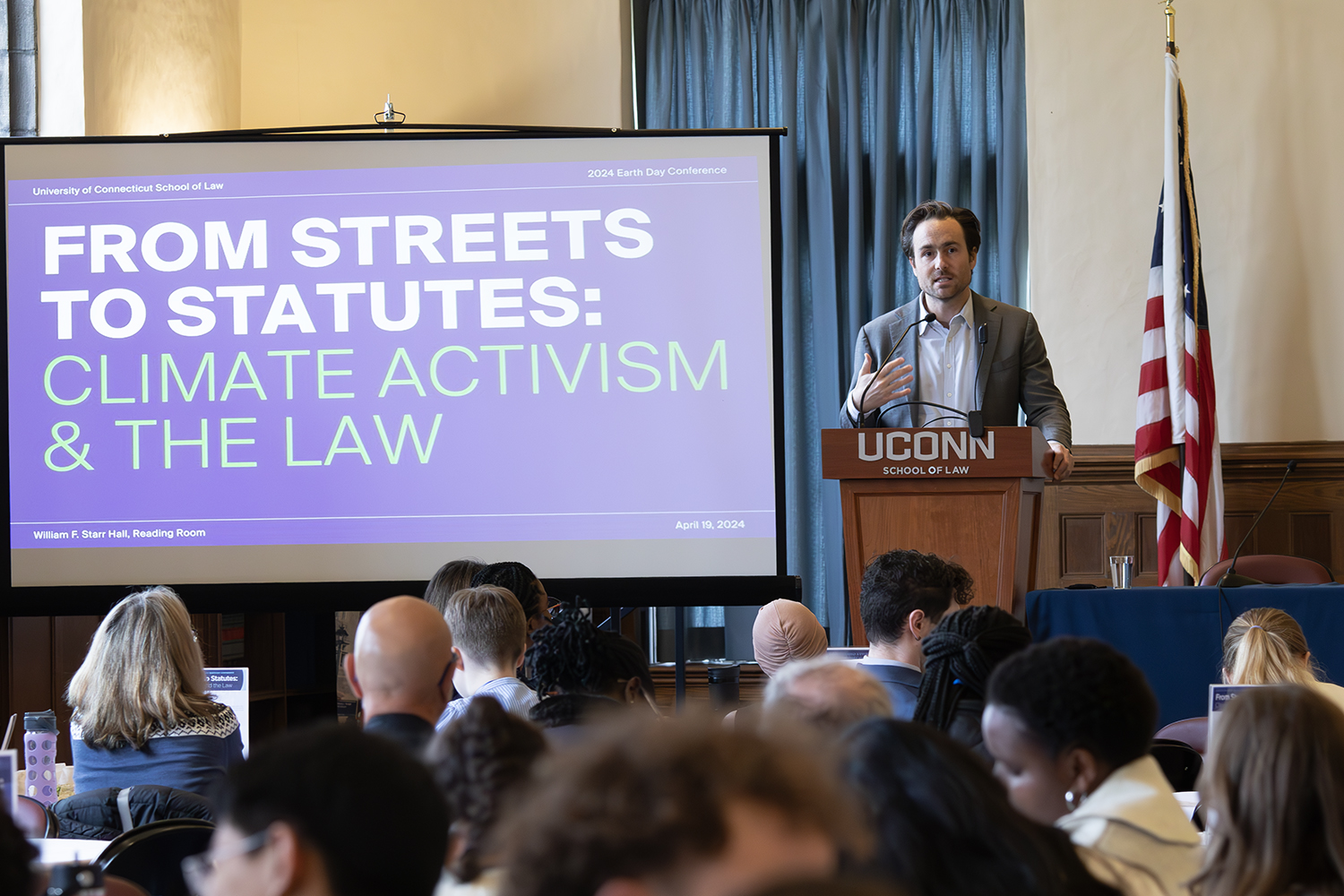In each engineering department, there is at least one professor who works as the designated Senior Design lead. The position doesn’t come with any fanfare or reverence, yet this dedicated individual leads the department’s Senior Design course, collects all of the projects, distributes those projects, and guides the students through their journey from beginning to end.
For mechanical engineering majors, Professor Vito Moreno is just one of these professors.
Moreno’s job as a Senior Design lead starts even before the school year does. In mid-to-late June, Moreno and the other Mechanical Engineering Senior Design lead, Professor Brian Weber, start reaching out to companies, in conjunction with Director of Senior Design Business Development Charles Maric, to gauge which have projects they would like students to work on, and what exactly they need for those projects.
“Mechanical engineering has a long history, where a majority of our projects are sponsored by companies,” Moreno said. “We want to give the students a real-world experience and a transition by doing this.”
All of this preparation leads to a comprehensive list that details each project, what the sponsor is looking for, and expectations. Senior Design students are then given this list on the first day of classes and they have a week to decide which projects they are interested in. Moreno and Weber then match the groups themselves so that the students aren’t just in groups with their friends.
“When you go to work you’re not going to be able to pick who you work with,” Moreno said.
After the students have their projects, they are assigned a faculty advisor, but Moreno’s role doesn’t stop there. While he still advises some teams’ projects, students still have a class component of Senior Design that meets twice a week. In the classroom, Moreno and Weber said he likes to focus on complementary information that will help them with their Senior Design project.
Communication, oral presentation skills, and teamwork are just some of these supplementary skills that students learn throughout the semester.
“We spend time talking to them about personality types and recognizing that people have a different perspective,” Moreno said. “Part of solving an engineering problem is one in which you appreciate the other person’s perspective because they may be looking at the project different from you are and vice versa.”
The supplemental materials are meant to prepare the students for the ultimate goal in April: Demonstration Day. Students will hone their oral presentation skills by conducting two presentations in both the fall and spring semester.
Throughout the first few oral presentations, Moreno said that students feel they should be presenting the absolute right answer, but this isn’t the case.
“It’s about presenting your progress, and what you’re learning, and how you’re going to use that learning to go forward,” Moreno said. “At the end, we expect to see the final answer, we don’t expect to see one in October.”
Students seem to reach that final answer through trial and error in the spring semester, when their experiments are usually in full swing and usually not going as planned, since typically most teams first test runs always fail, Moreno said.
“My response is welcome to the real world,” Moreno said.

However, overall, Moreno sees the mechanical engineering education as good preparation for Senior Design and ultimately the real world.
The same sentiment was echoed by Professor Krystyna Gielo-Perczak, Senior Design lead for Biomedical Engineering.
“They go through Junior Design, and we have certain courses that prepare them,” Gielo-Perczak said. “But Senior Design is different because they need to make this product and place it on the table.”
Much like mechanical engineering, Gielo-Perczak said that biomedical engineering projects are also sponsored by companies, but Gielo-Perczak sees her role as more than setting up projects.
“My main role [for students] is to facilitate, support and nurture, but not spell out needs,” Gielo-Perczak said. “Because I’ve known them so long, for four years, I see where they have talent and how valuable they are.”
And sometimes this support means knowing when her students need some extra support, and teaching team members to recognize this as well.
“I am showing and revealing even to my students that we need to be very flexible. If someone is stopping for a moment, let’s raise him together,” Gielo-Perczak said.
Gielo-Perczak sees these breaks as part of the learning process that will prepare them for their engineering career, not as struggles themselves, she said.
“If there is an incubation process, it is for everyone and there’s nothing wrong with it. It is a part of the process,” Gielo-Perczak said.
As for the skills Gielo-Perczak believes her students learn, creativity is at the top of the list.
“I really would like to bring the program from STEM through STEAM to STEMM (science, technology, engineering, mathematics, medicine), and to make art (or arts) a creative component in the engineering design process,” Gielo-Perczak said.
Engineering skills, openness, problem-solving, and trying to overcome stressful situations are just some of the other many skills that students learn.
“Mostly, they need to be aware that they are not alone,” Gielo-Perczak said.



